Film Inquiry Recommends: Critically-Hated Films That Deserve A Second Chance
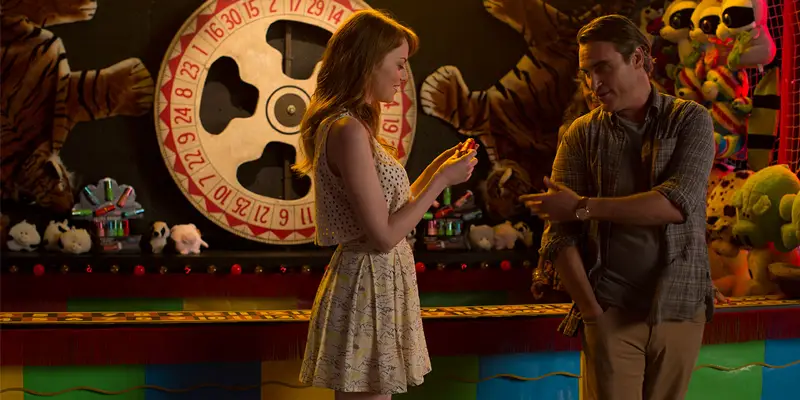
Alex is a 28 year-old West Australian who has a…
Over at our official Facebook page, we are currently posting daily film recommendations, with each week being a different theme. This is a collection of those recommendations! This week’s theme is critically-hated films that deserve a second chance.
Whilst we all understand the concept of the ‘guilty pleasure’ film (usually reserved for trashy films that we secretly love), sometimes there are some movies that we watch, fall in love with and then discover that they received terrible reviews or poor box office results. It can be quite baffling.
It can also be the reverse: avoiding a film due to bad reviews, only to watch it one day and have your low expectations blown out of the water. The most infamous example of a great film receiving bad critic reviews upon release is Stanley Kubrick’s iconic horror film The Shining, a film which was heavily condemned for straying away from Stephen King’s source material and its unique isolating tone (both points which are now celebrated).
This list covers just some films which received negative reviews upon release that I feel deserve a second viewing (or maybe even first for most people) to really re-evaluate their standing in cinematic history.
1. Mystery Men (Kinka Usher, 1999)
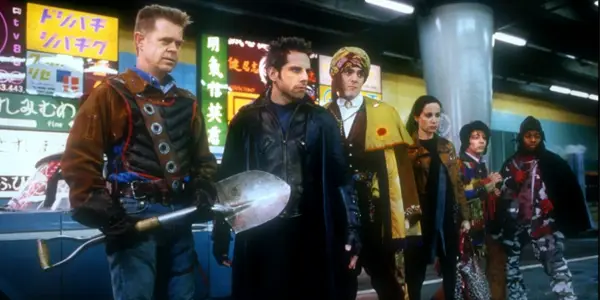
Rotten Tomatoes Rating: 60%
As a child, I had a horrible taste in films. My top three films were Roland Emmerich‘s Godzilla, Wild Wild West and Mystery Men. As I grew up and got into films, I quickly realised how awful Godzilla was, still appreciate Wild Wild West despite how weird it is but I still love Mystery Men. It’s the epitome of 90’s cinema: music video-like experimentation, over-inflated budgets on big screen reboots (others included Dragnet, The Avengers and the Beverly Hillbillies), including pop culture music in order to sell the soundtrack and shoehorning ‘hot-at-the-moment’ celebrities.
Loosely based on the cult comic book series Flaming Carrot Comics by Bob Burden, the film follows a group of sub-par superheroes who are desperate to save the day. In the crowded city of Champion City, Captain Amazing, a Batman-like figure, has finally kept the city safe for a long period of time. Due to his continuing sponsorship and increasing boredom, Captain Amazing decides to release his most favourite antagonist: Casanova Frankenstein (Geoffrey Rush) so he can recapture him and boost his popularity again.
When Frankenstein uses this plan to his advantage and the city is legitimately in danger, the “Mystery Men” gang are forced to save Champion City. The initial Mystery Me, made up of Mr. Furious (Ben Stiller), an angry guy with no powers at all, The Blue Raja (Hank Azaria) who uses cutlery as his weaponry and The Shoveler (William H. Macy), a family man who wields a shovel as his main weapon.
Mystery Men bombed critically and commercially upon its release, with many of its cast members, including Ben Stiller, openly discussing their regret for doing the film. This film would be welcomed with much wider arms nowadays, with superheroes dominating the current cinematic landscape. Its lampooning of the superhero genre still works today and behind the film’s crazy cinematography and Smash Mouth soundtrack, it has genuine heart. The main trio each have individual character arcs which grow organically, culminating in a “attack the castle” finale which goes completely insane in the best way.
The 90’s were a weird time in filmmaking, as the independent scene was on the rise again and better CGI made filmmakers escape the mistakes that the 80’s produced. Home video experimentation was on the rise, with new techniques with colour palettes, cinematography and editing. This lead to a revolution of different styles that, much like the 80’s, seems quite cheesy and over the top by today’s standards. Mystery Men is a fine example of this, but the film’s lovable characters, relevant satire and willingness to do something different make this such an endearing blockbuster, that it’s a sad shame that it didn’t do better.
2. 52-Pickup (1986, John Frankenheimer)
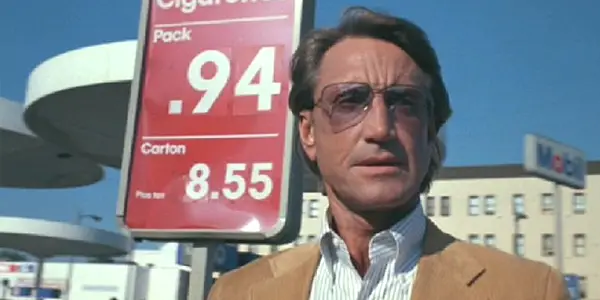
Rotten Tomatoes Rating: 46%
John Frankenheimer was one of the greatest American action directors of the 20th century, able to juggle action and story whilst injecting enough creativity to keep them interesting. Whilst his reputation has been ruined due to his last couple of films (Reindeer Games and The Island of Dr. Moreau), he has a large list of great titles.
Sadly, one of John Frankenheimer’s more underrated features, 52 Pick-Up, is one of his more darker and action-packed films which he directed later in life, before his decline into director-for-hire jobs. 52 Pick-Up is about Harry Mitchell (Roy Scheider, who plays a sympathetic-yet-flawed person, in one of his darker roles), who is a successful car manufacturer manager with an affair with a random woman. She turns out to be linked to a gang that tries to blackmail Harry with the tape of his affair. Refusing to pay, Harry starts to slowly turn the members on the gang on each other, which descends into chaos for all.
The ending for the film is slightly over-the-top, but overall it is a cool pulpy thriller, which features a cast of characters who are all people with problems trying to exploit others to get what they want. The way Harry goes about his plan to stop the gang is creative and interesting to watch play out on screen. Based on an Elmore Leonard novel, whose works have been adapted to some great films over the years, 52 Pick-Up is a sleazy action film that’s definitely different from the rest and worth checking out purely for that fact.
3. 10 to Midnight (1983, J. Lee Thompson)
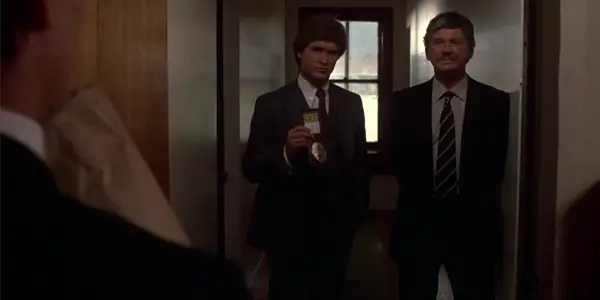
Rotten Tomatoes Rating: 40%
Charles Bronson is the personification of the old school cinematic tough guy. Bronson was an actor who had fought in World War 2 (as an aerial gunner), giving him the genuine fatigue of a man who experienced war first-hand, a roughness that he brought to his many roles. Whilst he’s best known for his mainstream hits such as Sergio Leone’s Once Upon a Time in the West and Robert Aldrich’s The Dirty Dozen, Bronson’s tough guy reputation was cemented by his large amount of work with the controversial Cannon film company. Cannon were an independent film company that emerged during the 80’s/90’s, infamous for their trashy and cheap films which threw out political correctness or thematic drama in favour for exploitative fun and making a quick buck.
With this company, Bronson frequently collaborated with two B-Movie directors: Michael Winner (which he made the influential Death Wish with) and J. Lee Thompson. Thompson and Bronson made nine movies together, due to Thompson’s quick and efficient shooting style, which Bronson loved. Their collaborations together aren’t as noteworthy as his films with Michael Winner, but they made a solid bunch of exploitative films together, with 10 to Midnight being the most controversial of the bunch.
10 to Midnight (a title which has been said by the producers to have no meaning within the film) is about Warren Stacey (Gene Davis), an office worker who is awful at approaching/talking to women. Whenever another woman rejects his creepy advances, he snaps and kills them. Once the police start to pick up on a pattern of murdered women around town, it is up to detective Leo Kessler (Charles Bronson) to solve the case. It is not long before Kessler starts to hone in on Warren, which puts himself and his daughter’s life in danger.
Upon initial release, the film received horrific reviews, notably from Roger Ebert who dismissed the film as “garbage”. Funnily enough, Gene Siskel was one of the only positive reviews of the film and the film did well financially, highlighting the power of Bronson’s star power before the age of VOD. This film is not perfect, the narrative is quite slow and the plot holes are through the roof but the film’s underlying themes about male sexuality are quite interesting, especially in today’s society. The film’s narrative is a derivative of the worn out Dirty Harry formula, but its old school charm and nasty violence are enough to satisfy anyone looking to turn their brain off for a bit.
4. The Exorcist 3 (1990, William Peter Blatty)
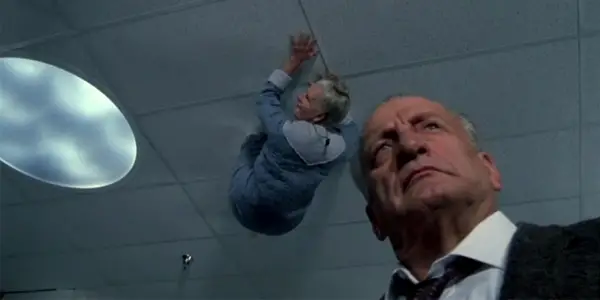
Rotten Tomatoes Rating: 55%
William Friedkin’s masterpiece The Exorcist isn’t exactly a film that screams franchise material. Whilst people complain about today’s climates of unnecessary sequels and pointless reboots, great horror films are often buried by countless sequels and useless franchising that shed the integrity of the original films they come from. Despite The Exorcist’s seemingly closed off ending, the film received two sequels and two prequels, all of which received horrible reviews. John Boorman’s The Exorcist 2 is one of the most critically reviled sequels in the history of cinema, a film hated by those who made it and fans/creators of the original (Friedkin himself aggressively hated the film).
Whilst The Exorcist 2: The Heretic was a direct sequel to the first one, a pointless retread of the first, what makes The Exorcist 3 so different is its approach to the world established in the original Exorcist. Whilst it does feel unneeded, William Peter Blatty’s cop procedural has some genuine scares which are more effective than most recent horror films and features a great leading performance by the always dedicated George C. Scott.
The Exorcist 3 picks up 15 years after the first film (ignoring everything from the Exorcist 2), with Lieutenant Kinderman (Scott), the movie-loving officer who investigated the mysterious death of Father Damien Karras (Jason Miller). When a string of recently murdered victims start to show similar patterns of ‘the Gemini Killer’ (a riff on the Zodiac killer), a recently deceased murderer, Kinderman must find out whether it is a copy-cat serial killer or something more supernatural. His investigation and quickly increasing body count leads him into the old Regan MacNeil exorcism case.
The film’s loose connection to The Exorcist universe was studio-mandated, as Blatty (the author of the original Exorcist novel) wanted to direct the adaptation of his latest novel, Legion. Scared that the film wouldn’t do well, they retitled it to The Exorcist 3 and forced Blatty to connect the film to the original Exorcist, hence the film’s sudden and ham-fisted exorcism sequence at the end of the film.
Blatty manages to create a tense atmosphere, successfully blending the worn-out cop procedural genre with the supernatural scares that The Exorcist is known for. The film was critically slammed upon release, with many people calling it a bland derivative of horror films of the time and not looking past the film’s unfortunate title. Whilst people may expect a terrible film due to being known as the third Exorcist movie, it is surprisingly great and would be regarded much higher if it went by its original title of ‘Legion’.
5. Jennifer’s Body (2009, Karyn Kusama)
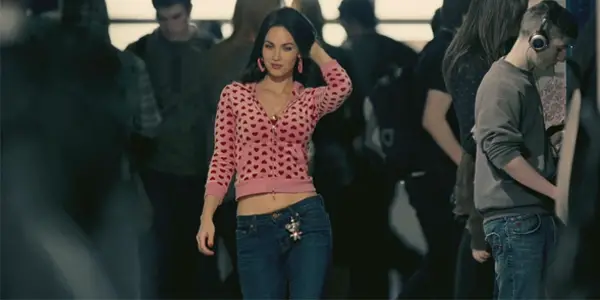
Rotten Tomatoes Rating: 42%
Karyn Kusama burst onto the scene in 2000 with the independent hit Girlfight, which brought both fame to Kusama and its lead actor, Michelle Rodriguez. After this, she directed the big budget adaptation of Aeon Flux starring Charlize Theron, which was taken by the studio and recut, straying far from Kusama’s original vision.
Between the commercial and critical disappointment of that film and Jennifer’s Body in 2009, many people had dismissed Kusama unfairly. Recently, she has come back in a big way with her disturbing thriller The Invitation, which once again highlights her talents in genre filmmaking, a much more subtle and chilling affair than the black comedy Jennifer’s Body.
Megan Fox stars as the titular Jennifer, a popular cheerleader in the dead-end town of Devil’s Kettle, who is best friends with the supremely nerdy Anita, aka ‘Needy’ (Amanda Seyfried), an uncommon friendship that many of their peers constantly question. One night when Needy and Jennifer go to the local bar to check out the rock band Low Shoulder, an accidental fire burns down the entire bar, leaving only Jennifer, Needy and the band alive.
Seemingly unaffected, the band take a shocked Jennifer with them, leaving Needy alone and confused. When Jennifer shows up the next day at school completely unharmed and without any sorrow for what has happened, Needy starts to seriously question what is going on, especially when many of the men around the school start to be killed in incredibly brutal fashions.
Jennifer’s Body is one film which has several unjust strikes against it upon release. The success of the first Transformers film in 2007 had propelled Megan Fox into stardom, making her one of the more prominent actors in mainstream media very quickly, making her appearance in an R-rated horror film quite controversial, added with the increasing audience fatigue of constantly seeing her image in the tabloids.
[bctt tweet=”‘By ignoring JENNIFER’S BODY, people missed an underrated gory callback to 80s horror films.'” username=”FilmInquiry”]The other big part was that the script was written by Diablo Cody, her first film after her huge debut success with Juno, which she won an Oscar for. Cody’s unique writing ability, plus her distinctive personality made her work very polarising, with some people loving her purposefully crafted dialogue and post-modernist riffing, with other people put off by her non-traditional screenwriting techniques.
With these factors, plus Kusama coming off the disappointing Aeon Flux film, many audience members quickly dismissed the film without seeing it. You can also chalk it up as a misogynistic backlash, but that’s a political debate for another day. What they missed was a highly underrated gory callback to the horror films of the 80’s, mixing Mean Girls-esque high school drama with the extreme splatter of a Video Nasties film.
6. The Hunger (1983, Tony Scott)
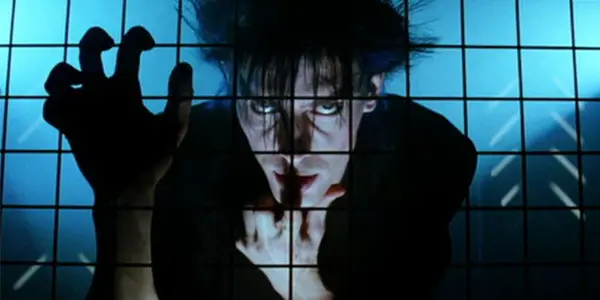
Rotten Tomatoes Rating: 46%
Tony Scott’s first full-length feature film, The Hunger, is an experimental horror film which mixes gorgeous visuals with art-house flair, pivoted around a trio of great performances. Scott was a director who played with a variety of different genres throughout his career, starting with art-house horror, to the mainstream action film Top Gun, going on to dabble in buddy-cop films (Beverly Hills Cop 2 and Last Boy Scout) paranoid thrillers (Enemy of the State and Spy Game) and action-packed crime films (True Romance and Revenge). He sadly never fully returned to the horror genre.
Egyptian vampire Miriam Blaylock (Catherine Deneuve) has lived generations by constantly finding partners, feeding off them and keeping them immortal, until she is sick of them and buries them alive. When her current partner, John (David Bowie) catches on that he is going to be discarded by Miriam and finally starts dying, he contacts doctor Sarah Roberts (Susan Sarandon), who initially doesn’t believe him. When he dies in a spectacular fashion, Sarah decides to investigate John’s claims and gets entangled with Miriam. The film mixes elements of the French New Wave, gothic imagery and old school vampire lore.
Even with his brief appearance (the film’s marketing was quite deceiving with his role within the film) Bowie does a great job of being a stylish vampire who slowly realises that he’s at the end of his very long life. His shift from calm and collected demeanour to increasingly desperate and weak is a big example of Bowie’s natural acting talents, being one person who made the transition from singing to acting successfully.
Upon initial release, many critics unfairly panned the film’s gothic and brooding tone, dismissing Scott’s obvious directing potential. This subversive vampire tale is now available on BluRay, which is a highly recommended way of checking out this sadly obscure horror film.
7. Irrational Man (2015, Woody Allen)
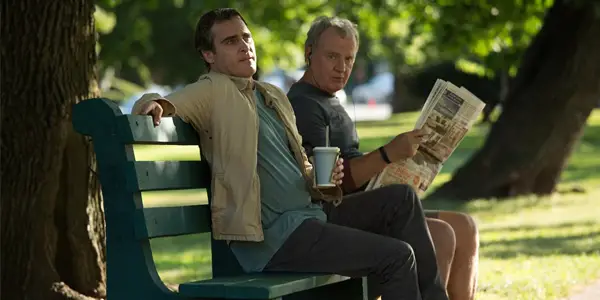
Rotten Tomatoes Rating: 44%
Woody Allen could be the most hit and miss director in cinematic history. With his insistence on pumping out one feature film per year, his consistency is all over the place, with some films hitting, but ever since the 90’s, he’s unfortunately seen more misses that severely outweigh his great films. Magic in the Moonlight was a weak generic rom-com, To Rome with Love had decent moments weaved in with filler and Midnight in Paris was a surprise in-between his string of failures.
That’s why Irrational Man is so interesting, it’s not quite a successful film (it didn’t fare well critically despite a decent box office return), but its ambition and darker tones are a pleasant shift from the dated existential romantic dramas that Allen likes to fall back on.
Irrational Man follows Abe (Joaquin Phoenix), a depressed philosophy professor who has a notorious reputation for sleeping with both students and fellow teachers. His quest to find meaning in life is altered by aspiring philosophy student Jill (Emma Stone), an impressionable woman who finds Abe’s musings to be incredibly interesting and alluring. Whilst Abe tries to prevent a relationship forming between the two, a fractured romance starts to bloom, which causes Jill to break up with her stiff boyfriend Roy (Jamie Buckley).
During one of their dates, Abe overhears a stressed out mother who is prevented from seeing her kids due to a corrupt judge. Abe decides that due to being disconnected from the case entirely, he could kill the judge, thus helping the woman’s problem with absolutely no repercussions. This philosophical idea starts to bring Abe a new meaning in life, but when his idea starts to become a very twisted and dark reality, Jill starts to realise the difference between simple philosophical projection and actually exploring these ideas in a practical method.
The biggest faults in Irrational Man lie with simple laziness on Woody Allen’s behalf, including the repetitive jazz score (it’s one song that’s looped several times), uninspiring cinematography and an unfocused screenplay. Allen attempted to study the psychological affects of innocent people driven to commit murder in Cassandra’s Dream, a miserable affair which is one of his absolutely worst films. Irrational Man works due to the leading performances by Joaquin Phoenix and Emma Stone, who share genuine chemistry with each other whilst injecting their underwritten characters with some much needed personality.
The fact that Woody Allen goes all the way with the film’s uniquely dark premise makes for an unpredictable narrative, even though the third act crumbles as Allen is not quite sure on how to end the film successfully. Whilst many critics outright ignored or dismissed the film, Irrational Man’s satirical approach to Allen’s well-worn “Old Man/Young Woman” complex makes Irrational Man at least worth checking out, it’s not one of his best films but it is certainly one of his better entries from the past ten years.
What are some other negatively reviewed films that you love?
Does content like this matter to you?
Become a Member and support film journalism. Unlock access to all of Film Inquiry`s great articles. Join a community of like-minded readers who are passionate about cinema - get access to our private members Network, give back to independent filmmakers, and more.













